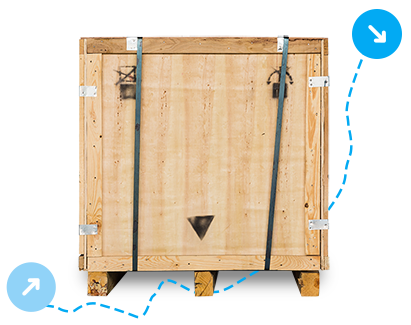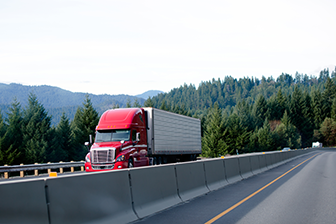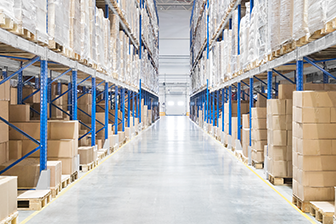
Table of Contents
What is LTL Shipping?
LTL vs. FTL
Is LTL Shipping Sustainable?
Why Should a Business Use LTL Shipping?
LTL Weight Limits
LTL Max Weight Limits
LTL Shipping Freight Classes
How Are LTL Freight Classes Decided?
Accessorial Freight Charges | What Could a Business Accrue During LTL Shipping?
Booking LTL Shipments on uShip
Author: Abby Ruffier
Table of Contents
What is LTL Shipping?
LTL vs. FTL
Is LTL Shipping Sustainable?
Why Should a Business Use LTL Shipping?
LTL Weight Limits
LTL Max Weight Limits
LTL Shipping Freight Classes
How Are LTL Freight Classes Decided?
Accessorial Freight Charges | What Could a Business Accrue During LTL Shipping?
Booking LTL Shipments on uShip
Author: Abby Ruffier
While parcel shipping may be an effective way to get your products direct to customers, Business owners can save time and money when they opt for LTL Shipping. LTL shipping is a preferred option for larger shipments that exceed the size and weight shipment limits that apply to parcel shipping.
When using LTL shipping, your products are placed on pallets, secured on a truck or trailer, and stored in a safe space for transit, which can lower the likelihood of theft and damages. uShip helps Business owners connect with LTL carriers every day so they can focus on doing what they do best, let us show you more.
What is LTL Shipping?
Less-than-truckload (LTL) is a freight classification for larger packages, one pallet or multiple pallets, or bulkier shipments. LTL transportation solutions are a common shipping option used to ship irregularly or uniquely shaped packages.
To put it simply, an LTL shipment doesn’t need the entire 48-foot or 53-foot trailer during transport. Instead of having to pay for all the space in the truck, you will only pay for the space in the trailer you use.
For small to medium-sized businesses, this can mean big savings. Less-than-truckload or LTL freight shipping is different from full truckload shipping (FTL). This is the shipping class you would use when you need all the space in the trailer.
LTL vs. FTL
LTL shipping is a preferred option for larger shipments that exceed the size and weight of limits that apply to parcel shipping. If your shipment takes less than 6 pallets and weighs approximately 150 pounds or less, LTL shipping is the way to go. More often for small to medium-sized businesses.
In terms of FTL shipping, this is a better option If your shipments will take up space in the entire trailer. Depending on the size of your typical shipment, this can help you decide whether LTL or FTL is the right method for your business.
Is LTL Shipping Sustainable?
The potential for damage and theft isn’t the only threat reduced by LTL shipping has substantially fewer check-ins and stops. LTL is also an ideal solution if all of your packages are being delivered to the same location. When you take advantage of extra space on trucks, that allows for fewer stops, fewer fill-ups, and an overall reduced environmental impact when you ship. When you book your LTL shipments with uShip, you can trust that you’re working with a company that thinks green. See our partnership with Terrapass for more information.
Why Should a Business Use LTL Shipping?
LTL transportation offers a host of benefits that can impact your bottom line. When you only pay for the part of the trailer or truck that your products use, you save money and your shipments will reach your customers on time. Additional benefits of LTL include:
LTL Weight LImits
LTL carriers are trained in providing expedited services for freight that exceeds the dimension and weight restrictions of parcel shipments. These most popular parcel carriers include FedEx, UPS, DHL, and USPS. Each of these carriers has its own specific weight limits for cargo based on the shipment information. See limit examples below:
LTL Max Weight Limits
Weight limits for LTL freight shipping vary from carrier to carrier. Some carriers may set limits of 10,000 pounds, but other LTL carriers may transport shipments up to 20,000 pounds. In addition to weight considerations, most LTL carriers will limit the shipment to a max of six pallets.
LTL Shipping Freight Classes
Defined by the National Motor Freight Classification, LTL freight classes are a standardized method of calculating the LTL freight quote price. In total, there are 18 different freight classes. The freight class offers a standard comparison for commodities moving interstate, intrastate, and internationally. Lower freight classes are typically less expensive than higher freight classes for several reasons.
How Are LTL Freight Classes Decided?
When it comes to freight class, there are four key factors that are used to determine your quote.
Density in Pounds per Cubic Feet
Lower density=lower freight class, and higher density= higher freight class.
Stowability
How easily can your freight be stacked and stored to maximize space?
Handling
Packaging, fragility, and ease of transport.
Liability
Probability of your item to sustain or cause damage to other freight. FYI: uShip protection plans are always available to help cover any and all damage to your shipment.
Accessorial Freight Charges | What Could a Business Accrue During LTL Shipping?
Freight accessorial charges are the extra services performed by a carrier in addition to the standard dock-to-dock pickup and delivery. While accessorial freight charges can encompass a wide variety of services, some of the most common include:
Make sure you discuss all of these potential charges with your LTL carrier of choice before making your choice and agreeing to do business.
Booking LTL Shipments on uShip
1. Log in to your uShip account, enter your shipment details
2. Get pricing and choose your carrier
3. Enter your bill of lading information
4. Consider a uShip protection plan
5. Confirm your booking
6. Check your email for your booking confirmation
Ready To Get Instant LTL Shipping Quotes on uShip?
Get LTL Shipping QuotesMore LTL Freight

When shipping household goods, you have a variety of service options to choose from. It is important to know what kind of service your shipping company provides so you can properly prepare your item for shipment.

When you choose a professional carrier with years of experience, you’ll save money, time, and a lot of stress.

Measuring boxes, pallets, and crated freight is often confusing for beginners. If you do not know how to measure your freight properly, you risk paying additional fees after delivery.